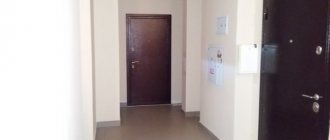What is a hostel?
A hostel is a special form of hotel. The main difference from a hotel is the nature of the accommodation of guests. There are no separate rooms for one or two people. Sleeping places are equipped in a common room, often with bunk beds. The kitchen and bathrooms are common for use. Instead of a bath, there is a shower.
Due to the saving of space per person, the price of services in the hostel is significantly lower than in a regular hotel. For this reason, mini-hotels are popular among the mobile population, for whom comfort is not as important as the cost of temporary accommodation. The convenience of hostels lies in the ability to open them in central urban areas, where daily rent of residential premises and expensive hotels are expensive.
Hostel Ban Law
Federal Law of the Russian Federation No. 59 of April 15, 2019 “On amendments to Article No. 17 of the Housing Code of the Russian Federation” put an end to the history of the ban on hostels. It was first submitted to the State Duma in September 2015, and a year later, in September 2016, it was adopted in the first reading. However, the second reading did not go so smoothly - proposals with amendments were constantly received that changed the very essence of the law. Due to the current uncertainty, the issue was raised at an open consultation with Dmitry Medvedev. He supported the idea of closing mini-hotels, but even after adoption in the second reading the new legislative act met with great resistance. And this is not surprising - about 35% of hotel business facilities are under threat of closure. However, the law was approved - starting from October 1, 2019, hostels located in residential buildings will be banned. To meet new requirements, entrepreneurs will need to significantly reorganize the existing space and adapt their everyday life to modern standards
Is it possible to open your own mini-hotel from scratch in non-residential premises and apartments?
Until October 1, 2021, entrepreneurs took advantage of the opportunity to open hotel establishments in apartment buildings by purchasing apartments on the floor or concluding lease agreements with the owner. This situation suited clients and hostel owners. The negative reaction of residents in the entrances of houses to noise, dirt, and the question of whether it is legal to open a hostel in an apartment received a response from legislators.
To the question - how to make a hostel from an apartment - after September 1, 2019, the answer will be as follows - not at all or if certain requirements are met.
Hostels located in residential premises must be closed. The owner of the hostel is obliged to re-register the apartment/apartments from the residential category to non-residential, subject to the conditions of floor placement.
Hostels in multi-storey buildings can only be placed in non-residential premises on the 1st floor. It is possible to open an establishment one or two floors above, provided that there are non-residential premises below: shops, organizations providing household, medical, legal and other services.
In addition, starting from October, hostels must have a separate entrance. Walls and ceilings shared with apartments must be soundproofed. Fire safety requirements have been tightened: installation of a fire alarm is mandatory. The desire to have a good income without taking into account the opinions of residents became the reason for a harsh legislative response.
Re-registration and installation of a separate entrance will require significant expenses. Hostels above the 3rd floor will close. For visitors, this will mean the inability to stay in cheap hotels in the city center.
Hostels are banned: what to do?
Owners of small hotel businesses are on the verge of big changes - for some the new law will be the beginning of the end, for others they have already perceived this as a challenge. In this situation, we offer several possible solutions:
- Convert the exploited areas into non-residential stock (if the apartment is on the ground floor, this is quite possible);
- Find loopholes in the bill - for example, on hotel forums they are now seriously discussing the option of signing a classic daily rental agreement with residents (which will stipulate the possibility of providing additional services: changing linen, cleaning the premises, etc.);
- To purchase non-residential space that has the status of apartments - today a lot of interesting residential properties are being built, which are positioned as apart-hotels; organizing hostels in them is absolutely legal (of course, the cost of “apartments” in the central regions is quite high, but, having an established reputation and name, you can quite quickly return the money spent).
One way or another, the bill will have the greatest impact on representatives of small businesses, those who do not have a financial cushion and are not legally protected. It is still difficult to say what percentage of entrepreneurs will leave the “hostel” business, but one thing is clear - until there is a clear distinction between mini-hotels, quality hostels and places to stay at the lowest level, the law cannot be implemented correctly.
Pros and cons of opening a hostel
Inexpensive hotels in busy areas are always in high demand among visitors. The business will be successful if the entrepreneur is able to offer services that are comparable in quality, cost, and location of the hostel. Provided that the occupancy rate of the mini-hotel is above 50%, the costs will be recouped within 2 years.
Important! There is always risk when starting your own business. It is impossible to foresee how the situation may change in a few years in terms of legislation, the standard of living of the population, which will affect the desire to travel.
Running a small business, due to low income, limits the recruitment of staff; the hostel owner has to resolve many issues every day. The owner’s high level of employment is a minus in organizing a mini-hotel.
Why are the authorities against hostels?
The thing is that during the period of rapid growth of hostels, that is, in 2012–2013, a lot of dormitories for workers were opened in residential buildings, where basic sanitary standards were not and are not being observed. Residents of apartments adjacent to such enterprises began to suffer from this. But the most interesting thing is that all these hostels were and continue to hide behind the “Hostel” sign.
As a result, due to massive attacks by officials at both the federal and local levels, the hostels were severely discredited. Local deputies consciously look for such hostels for workers in their area and, under camera lenses, break into them, declaring that all hostels are brothels. But this is not true at all.
For example, some modern and “correct” hostels in Moscow and St. Petersburg are even ahead of their European counterparts in many respects. In essence, in hostels guests receive 1-2 star hotel service. Clean bed linen, free internet, clean water, 24-hour reception, cleaning, breakfast, common areas - this is an incomplete list of what is offered to a guest who checks into a hostel. But, as usual, there are black sheep in every herd. Likewise, among hostels there are unscrupulous players. The problem is that because of them, legislators want to brush everyone with the same brush. This is not true. Agree that in public catering there are many examples of low-quality cafes, and some are even dangerous to the lives of customers. But this does not mean that all cafes need to be closed.
How to legalize guest houses for rent?
How to convert an apartment from residential to commercial real estate?
Price
The costs of opening a hostel are divided into one-time and ongoing. One-time – these are financial investments in the material base of the mini-hotel and registration of permits:
- The premises need to be refurbished to match the status of a hostel.
- Purchase equipment, furniture, inventory.
- Organize a promotional event.
- Register a business.
- Other expenses.
The largest share in one-time expenses is occupied by the arrangement of the hotel, since the quality of the services provided and competitiveness will depend on this. The lump sum depends on the number of beds and the package of services that guests can count on. Approximately, this will amount to about one and a half million rubles.
Current expenses include:
- wages of service personnel;
- Payment of utility services;
- bank loan;
- remote accountant;
- sanitary and hygiene products;
- other expenses;
- transfers to the budget.
The amount of monthly expenses, on average, does not exceed 200 thousand rubles, including about 50% - wages of employees and accountants. If the premises are rented, then rental costs should be added here.
We remain in the housing stock. What should I change on the site?
| Can not use | What to replace |
| Hotel, hotel, hostel and their derivatives | House, part of a house; apartment, part of an apartment; room |
| Number | Room, apartment |
| Accommodation facility | House, part of a house; apartment, part of an apartment; room |
| Bed, berth | To remove it completely: it is impossible to rent out beds and sleeping places according to the new law |
Room categories:
| Come up with new category names  |
| Services | Completely remove both paid and free services. |
Where is the demand greatest?
The business will be successful if the services offered are in demand. An analysis of migration flows to or through a populated area should be done. Large cities, tourist and resort areas are in an advantageous position. The need for a hostel will arise if there is a tradition of holding festivals and exhibitions in the area.
Before organizing a mini-hotel, you need to compare supply and demand: find out how many similar establishments there are in the city, where they are located, what services they offer, and at what price. The information received will help you make a choice - where, how, and how much to open a hostel.
Where to open a hostel
Location plays a huge role for any hostel. As English folk wisdom says, “There are three criteria for assessing real estate: firstly, its location, secondly, location, thirdly, location.” Most hostels are located in the city center, close to the metro and other important transport links. It is important to understand who your main clients are and, based on this, decide where to open a hostel.
There are two main categories of hostel guests:
- tourists (mostly young people)
- conference participants/people in town on business.
If the hostel is aimed at tourists, it should be located near the main tourist routes.
If you are planning accommodation for conference participants, it should be located close to the city's business center and conference rooms.
In any case, good transport accessibility is important so that you can easily reach any part of the city from the hostel.
Required permits and documentation
What you need to have to open a hostel in non-residential premises:
- complete paperwork at the local administration;
- tax office;
- open a bank account.
The type of activity (Limited Liability Company) is registered with the mayor's office or district administration.
Based on the received paper, the State Tax Inspectorate assigns an OKVED code. Entrepreneurs are required to record payments for their services through a cash register, which must be registered with the tax office.
The next stage is concluding a lease agreement if the future businessman does not have his own non-residential real estate. Then the premises are renovated, equipment and furniture are installed.
Upon completion of the arrangement, it is necessary to obtain permission from the sanitary-epidemiological and fire authorities. Based on a package of documents giving the right to open a hostel, an agreement is concluded with the management company.
Ban on hostels in residential buildings 2021 - what does the law say?
Contrary to popular belief, it is still possible to open hostels in high-rise buildings from October 2021. But there is a condition: the placement of such objects is allowed only in non-residential premises. This is prohibited in apartments, as well as other residential properties (for example, private houses).
To open a hostel legally, the premises will have to be converted to non-residential status. This is a rather complicated procedure that takes a lot of time. In addition, non-residential premises equipped as a hostel must meet a number of requirements:
- It should be located on the first floor. Opening mini-hotels on the second floor and above is permitted only if all the lower premises are also non-residential.
- The future hostel should have a separate entrance. Moreover, it is not enough to equip such an entrance: it must be isolated from the stairs or common area. In other words, access to the hostel through the premises that allow people to get into their apartments will have to be closed.
- There cannot be registered residents in areas intended for hostels.
When changing the status of an apartment, many more actions need to be taken. For example, the owner will have to obtain the consent of neighbors for such changes, draw up a redevelopment project, and obtain opinions from firefighters and the SES.
It is clear that the innovations will complicate the lives of many hostel owners. Now, not just an apartment with a beautiful sign, but a professionally equipped room should be allocated to accommodate people.
This requires funds, and not all properties can be converted to non-residential status. Some business owners who were unable to adapt to the new conditions have already had to leave the market.
With the adoption of the new law, people have many other questions. One of the most pressing questions is whether it is possible to continue renting out housing for a short period of time (for example, daily). Since this right of citizens is enshrined in the Constitution, no one has canceled it. You are allowed to use your apartment to conduct business; it is hotel services that are banned
Personnel and equipment
Important! The hotel must be equipped in accordance with the requirements of the State Standard of 2014. If they are not met, permits will not be issued.
Requirements for the arrangement of the premises:
- distance from floor to ceiling - at least 250 centimeters;
- 1 sink – for 6 guests;
- 1 toilet – for 12 people;
- 1 shower – for 15 people;
- The minimum area for 1 bed is 4 square meters.
Single beds (80x190 centimeters) must be at least 75 centimeters apart. No more than 8 people can be accommodated in one room.
When planning a hostel, the following should also be provided:
- small kitchen for preparing and serving breakfast and dinner;
- lounge room with TV;
- utility room for storing equipment, bed linen and sanitary products;
- administrator's room.
To give coziness and comfort you will need:
- bedside tables;
- sofa;
- chairs;
- kitchen table;
- Kitchen Cabinet;
- TV;
- curtains;
- lampshades.
In the kitchen you need to put a refrigerator, microwave, electric kettle, and a set of dishes. A double set of bed linen and towels is purchased, depending on the number of guests. The presence of an iron with ironing board, automatic machine, and Internet access will increase the competitiveness of the hostel. Employees will need a vacuum cleaner and a laptop.
The minimum number of employees in a mini-hotel is 4:
- 2 people – at the reception, registration, check-out of visitors (in shifts);
- cleaning lady-maid;
- accountant.
Depending on the area and number of beds, the cleaner and accountant are hired full time or for several hours.
What is better to choose, an apartment or a non-residential building?
Renting an apartment is the most budget option, especially since since 2015 it has been officially allowed to use them to run such a business. But you won’t be able to make a big profit from an apartment, so it’s better to consider areas of 150 m2 or more. In addition, in such an area it will be easier to arrange everything in accordance with GOST R 56184-2014:
the bathroom is located outside the rooms;- at least one shower and toilet for 15 people;
- separate bathroom;
- availability of space for guests to communicate;
- food place (if there is a catering point nearby, this condition is not necessary, but a kitchen will always be an advantage);
- availability of drinking water and kettle;
- high ceiling - from 2.5m;
- area per bed from 4 sq. m.
A business in an apartment must comply with the standards of the Housing Code of the Russian Federation (Article 17) and not violate sanitary and fire standards, and also not harm the safety and peace of neighbors.
Non-residential premises are also used for opening, but first make sure that it complies with fire safety standards and SanPin. It is prohibited to move people into rooms without windows and on the ground floors.
Considering that the most mobile group of the population are young people under 30, it is necessary to use advertising tools on the Internet:
- Create an information website about the hostel with photographs, list and cost of services, contacts;
- Conclude agreements on advertising placement: on intermediary sites for booking accommodation;
- travel agencies;
- on social networks.
As a marketing ploy on the website and in advertising, it is worth pointing out discounts when booking a large group or for a long time.
Rospotrebnadzor inspections
Sanitary and epidemiological well-being checks can be:
- Scheduled (the schedule can be found on the website of the inspection organization).
- Unscheduled (in case of complaints, registration of outbreaks of infectious diseases and in a number of other cases).
The hostel's accounting documents are checked (disinfectant logs, ventilation maintenance logs, production control logs), all of the above contracts, acts of washing work surfaces, employee health records, compliance of the premises and equipment with SanPIN. Upon completion of the inspection, the head of the organization/his representative or private entrepreneur is issued an inspection report.
Staff
Everyone knows that the demand and popularity of an establishment largely depends on the quality of service.
If you want your hostel to make a good profit, you need to be responsible when choosing staff. For a small establishment, it is enough to hire a manager, an administrator and 1-2 maids. If you are financially able, hire a cook and a kitchen assistant.
The administrator is the face of the hotel. He is responsible for receiving guests and placing them. For such a position you need to find a responsive, sociable person. It is advisable that he speaks English in case foreigners move in with you.
Ready business hostel
Opening a hostel is not an easy matter. The fire inspectorate and the SES can slow down the process, demanding that deficiencies be eliminated, and repairs, purchasing furniture and personnel training require not only money, but also time. An entrepreneur has a choice: open his own hostel from scratch or buy a hostel as an already operating business. In the second case, he receives a fully equipped premises with all the documentation and an establishment that already has a reputation, established advertising channels and clients.
| The main advantages of the hostel |
|
| Disadvantages of the hostel |
|
| Recommendations for investing in a hostel |
|








